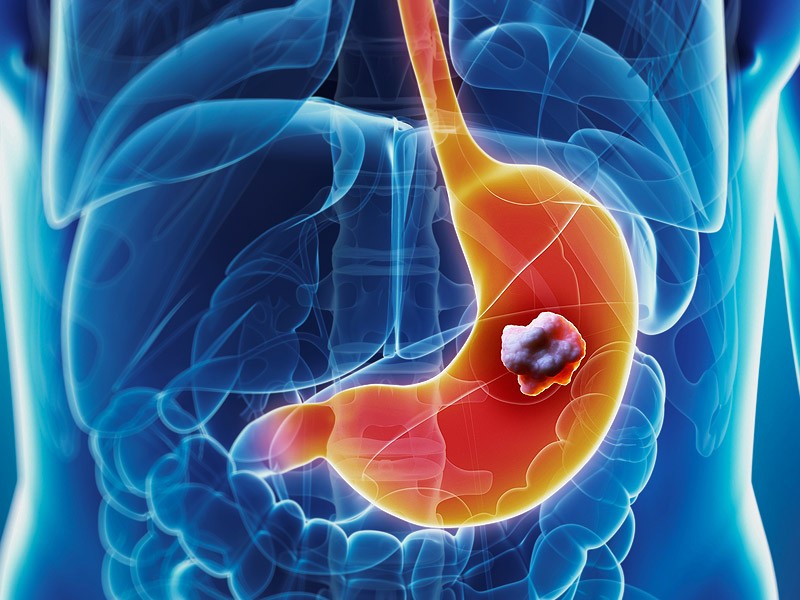What Is Stomach Cancer?
- Stomach cancer occurs when cancerous cells form in the stomach lining.
- This type of cancer usually doesn’t cause symptoms until the later stages, so it’s often not diagnosed until it’s more advanced.
- While difficult to detect, treatment for stomach cancer is possible through chemotherapy, radiation therapy, and surgery.
Stomach cancer is characterized by a growth of cancerous cells within the lining of the stomach. Also called gastric cancer, this type of cancer is difficult to diagnose because most people typically don’t show symptoms in the earlier stages.
What Causes Stomach Cancer?
Your stomach (along with the esophagus) is just one part of the upper section of your digestive tract. Your stomach is responsible for digesting food and then moving the nutrients along to the rest of your digestive organs, namely the small and large intestines.
Stomach cancer occurs when normally healthy cells within the upper digestive system become cancerous and grow out of control, forming a tumor. This process happens slowly, so stomach cancer tends to develop over many years.
Risk Factors of Stomach Cancer
Stomach cancer is directly linked to tumors in the stomach. However, there are some factors that might increase your risk of developing these cancerous cells. These risk factors include certain diseases and conditions, such as:
- lymphoma (a group of blood cancers)
- pylori bacterial infections (a common stomach infection that can sometimes lead to ulcers)
- tumors in other parts of the digestive system
- stomach polyps (abnormal growths of tissue that form on the lining of the stomach)
Stomach cancer is also more common among:
- older adults (usually those 50 years and older)
- men
- smokers
- those with a family history of the disease
- individuals who are of Asian (especially Korean or Japanese), South American, or Belarusian descent
While your personal medical history can impact your risk of developing stomach cancer, certain lifestyle factors can also play a role. You may be more likely to get stomach cancer if you:
- eat a lot of salty or processed foods
- eat too much meat
- have a history of alcohol abuse
- don’t exercise
- don’t store or cook food properly
Symptoms of Stomach Cancer
According to the NCI, there are typically no early signs or symptoms of stomach cancer. Unfortunately, this means that people often don’t know anything is wrong until the cancer has reached an advanced stage.
Some of the most common symptoms of advanced stomach cancer are:
- nausea/vomiting
- frequent heartburn
- loss of appetite (sometimes accompanied by sudden weight loss)
- constant bloating
- early satiety (feeling full after eating only a small amount)
- bloody stools
- jaundice (a yellowish discoloration in the eyes and skin)
- excessive fatigue
- stomach pain (which may be worse after meals)


Who is the best doctor for prostate cancer in Kolkata?
what is cost for chemotherapy in kolkata?
whats is the causes for prostate cancer ?